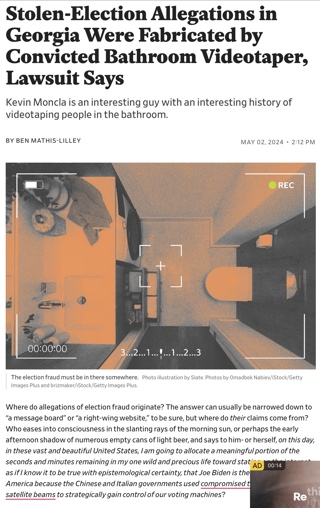BBC Suing to Suppress Critical Report on ME Coverage
The BBC is using British taxpayer money to try to keep a report on their disgustingly biased Mideast coverage secret: BBC mounts court fight to keep ‘critical’ report secret. (Hat tip: Michael.)
The BBC has spent thousands of pounds of licence payers’ money trying to block the release of a report which is believed to be highly critical of its Middle East coverage.
The corporation is mounting a landmark High Court action to prevent the release of The Balen Report under the Freedom of Information Act, despite the fact that BBC reporters often use the Act to pursue their journalism.
The action will increase suspicions that the report, which is believed to run to 20,000 words, includes evidence of anti-Israeli bias in news programming.
The court case will have far reaching implications for the future working of the Act and the BBC. If the corporation loses, it will have to release thousands of pages of other documents that have been held back.
Like all public bodies, the BBC is obliged to release information about itself under the Act. However, along with Channel 4, Britain’s other public service broadcaster, it is allowed to hold back material that deals with the production of its art, entertainment and journalism.
The High Court action is the latest stage of a lengthy and expensive battle by Steven Sugar, a lawyer, to get access to the document, which was compiled by Malcolm Balen, a senior editorial adviser, in 2004.
Richard Thomas, the Information Commissioner, who is responsible for the workings of the Act, agreed with the BBC that the document, which examines hundreds of hours of its radio and television broadcasts, could be held back. However, Mr Sugar appealed and, after a two-day hearing at which the BBC was represented by two barristers, the Information Tribunal found in his favour.
Mr Sugar said: “This is a serious report about a serious issue and has been compiled with public money. I lodged the request because I was concerned that the BBC’s reporting of the second intifada was seriously unbalanced against Israel, but I think there are other issues at stake now in the light of the BBC’s reaction.”
The BBC’s coverage of the Middle East has been frequently condemned for a perceived anti-Israeli bias.
In 2004, for example, Barbara Plett, a Middle East correspondent, was criticised for revealing in an episode of Radio 4’s From Our Own Correspondent that she had been moved to tears by the plight of the dying Yasser Arafat. MPs said it proved that the corporation was incapable of presenting a balanced account of issues in the Middle East.











